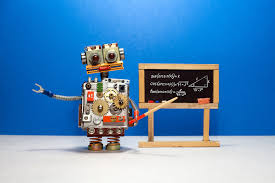Source: insights.dice.com
Artificial intelligence (A.I) technologies such as computer vision and machine learning are providing new ways to revolutionize learning and skills training at universities. From doctorate degrees in machine learning (ML) to bots that aid the work of teachers, there’s accelerating interest at the college level in A.I. and ML.
Research firm TechNavio projects that the A.I. market in education will grow by a compound annual growth rate (CAGR) of close to 48 percent from 2018 to 2022 (the study also noted the role of chatbots in enhancing learning—hopefully that technology pans out better for education than it did for most of the business world).
Ethics (and Limits) of A.I.
One area in which A.I. intersects with student learning is in ethics. Some studies are already exploring the ethical issues of replacing teachers with bots. However, although bots can enhance education, they can’t replace teachers, according to Bernhardt L. Trout, professor of chemical engineering and director of Society, Engineering, and Ethics at the Massachusetts Institute of Technology.
Trout argues that A.I. can enrich the learning of students as they master skills, languages and basic math, but it can’t help students learn creativity or critical thinking. “Bots will not be able to decide for us what is good, although they might be able to help us learn better the issues around the decision of what is good,” he said. “Bots are limited in making certain choices about education in ways that human beings are not limited, so this is where we get into the more ethical issues.”
Trout sees bots teaching themes or the usage of certain words, for example, but they may be limited in helping students critique literature. He believes a bot is unable to teach the essential concepts needed to understand the work of philosophers such as Plato or Dante, or painters such as Michelangelo: “That’s where I think there is an intrinsic limitation.”
ML and Educational Data Mining
Zachary Pardos, assistant professor in the Graduate School of Education and the School of Information for the University of California at Berkeley, has been developing a system that uses ML to help students choose a course curriculum based on past student enrollment histories. His research uses 10 years of UC Berkeley student enrollment records.
One goal of the initiative is to use ML to get an idea of what every course entails, and to focus on sets of employable skills rather than single-course curriculums. In theory, this ML-powered data mining could help students choose the best courses to meet their goals, making their educational pathway that much more efficient.
Machine learning can also provide data on how students are mastering skills. Pardos has studied AI systems that provide insight on how much additional training students require in a particular skill. “Essentially, the AI is saying: ‘Does the student need to be given more practice, yes or no?’” Pardos said.
Meanwhile, UC Berkeley is among the universities using an assessment and learning system called Aleks, which stands for Assessment and Learning in Knowledge Spaces. Aleks helps teachers determine whether a student has mastered certain skills. The university uses the ML algorithms to develop a personalized curriculum for students in an area such as math, chemistry or accounting. Based on the results of the AI assessment, students might switch their degrees from an area like sociology to data science.
A.I. Plays Tutor and Detector of a Student’s Mood
Meanwhile, ML is playing a role by providing analysis of students’ emotional states, according to Bruce McLaren, research professor at Carnegie Mellon University and the past president of the International Society for Artificial Intelligence in Education. ML applications can tell if a student is bored or confused, and then teachers adjust lessons based on that. In addition, CMU uses ML software to help students analyze each other’s papers as part of a peer review process.
“For instance, you got two students who write papers, and they review one another’s work, but then they might also be aided by some artificial intelligence or natural language processing that can analyze the papers and provide additional feedback,” McLaren said. “There’s a system that’s been used in some classes at CMU to do that.”
Over the next several years, artificial intelligence and machine learning could have an outsized effect on how students learn, as well as how universities structure their academic curriculum. But will all that cutting-edge tech actually improve learning?
